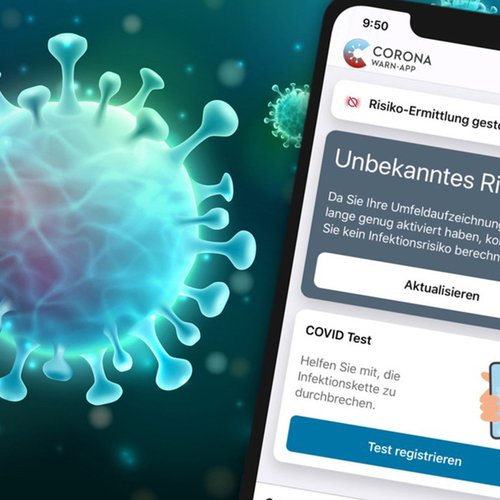Since yesterday, the mobile app of the Robert Koch Institute for the containment of the Corona pandemic is available for download. CHIP and FOCUS Online joined forces and discussed the issue with selected experts in a one-hour LIVE broadcast.
The questions from the community set a clear focus: data protection and battery life of smartphones are the topics that currently occupy users the most.
In conversation, the experts give the all-clear. According to developers, the app uses less battery power than streaming music to a Bluetooth speaker. The reduction of the battery life is therefore in the imperceptible range. In addition, all tests are decentralized, which means that everything takes place on the respective smartphone of the app user.
"There is no contradiction between privacy and health protection. Today's release of the app shows that we can be satisfied with the democratic process that has taken place during its development. The most confidence-building measure is to collect as little data as possible and to keep it decentralized. This is ensured by the app.“
Another interesting point of conversation in yesterday's live interview was the issue of the sensitivity of the app. Whether the app sounds an alarm depends on the strength of the Bluetooth signal. This Bluetooth interface measures the parameters proximity and length of the contact. To do this, the app sends out a Bluetooth signal every two to five minutes. This means that the longer the Bluetooth signal exists and is detected between two smartphones, the higher the risk. However, it should always be noted that the app cannot filter what the contact looked like in real life. If a contact existed for more than 15 minutes, but a window separated the two contact persons, the app does not recognize this and sends a signal anyway.
The Corona App is a cornerstone in the fight against this pandemic and serves above all to relieve the burden on our health authorities.“
The live broadcast for the Corona warning app was the first major video cooperation between CHIP and FOCUS Online, involving around 15 colleagues across both portals and all teams. Within three weeks, this project was set up with joint effort.





